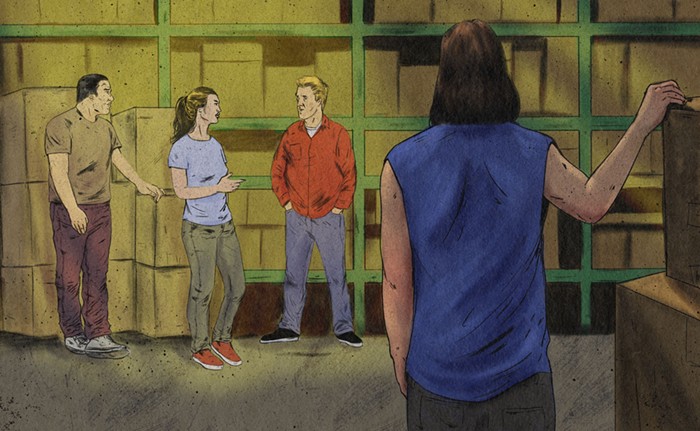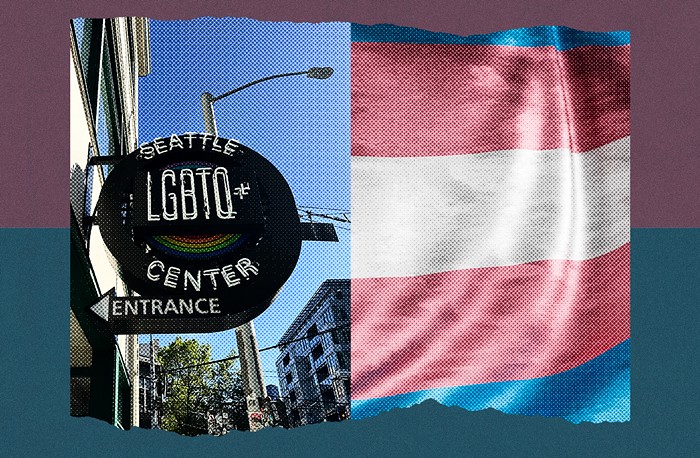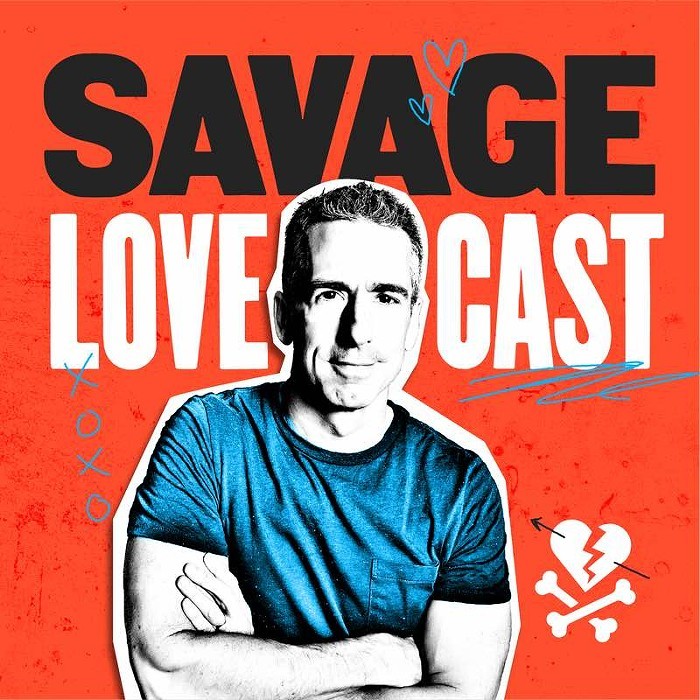Strippers, lawmakers, and the LGBTQ+ community gathered at Massive on Capitol Hill Saturday night to celebrate the passage of a bill to allow nudity in places that serve alcohol. The bill opened up a path for Washington strip clubs to serve liquor for the first time in about 50 years and broadened allowances for employees at queer bars to bare their nipples.
Though advocates paused the fight to celebrate over the weekend, a few more hurdles lie ahead. The bill still needs a signature from the Governor, and the Liquor and Cannabis Board (LCB) still needs to establish a process for clubs acquiring liquor licenses. Nevertheless, organizers with the dancer-led Strippers Are Workers campaign say they’re hopeful they can build on this victory, leading to bigger advancements for Washington’s sex workers in the future. But on Saturday night, organizers seemed content to live in the moment and celebrate an end to cops raiding gay bars in search of bartenders in jockstraps.
Among other things, the night previewed a future where adult entertainers can work in safer and more profitable clubs. As opposed to wandering into a dark, empty club, people waited in a line stretching down the block to enter the Massive, a three-story queer bar with a giant dance floor and disco balls splashing light over go-go dancers shaking their asses on platforms. Up on the top floor, strippers performed impressive pole dancing routines as legislators tossed them singles. Washington State. Rep. Amy Walen (D-Kirkland), who sponsored the House version of the Strippers’ Bill of Rights, showed up at just a little after 11 pm with her husband Jim, who someone immediately stopped and roasted, saying he looked like a cop on a raid in his new sports coat.
A little before Walen arrived, other lawmakers, including Seattle Reps Liz Berry, Emily Alvarado, Darya Farivar, Julia Reed, and Tacoma Rep. Sharlett Mena had gathered onstage to huge applause and cheers from the crowd for their work to eliminate the lewd conduct rules for places in Washington that serve alcohol. At one point, Mena grabbed the microphone and emphasized that the people in the club represented the real power behind this movement.
After the lawmakers spoke, the mic went to Madison Zack-Wu, campaign manager for Strippers Are Workers (SAW), the dancer-led organization that has tirelessly pushed legislators on the issue of worker protections for adult entertainers.
“This bill was passed because dancers started organizing in their clubs more than six years ago. This has been long-awaited, long overdue,” Zack-Wu said.
The fight started in 2019, when dancers asked legislators to require that clubs install panic buttons, blacklist problematic customers, and create other protections for adult entertainers. Advocates also pushed for the creation of an Adult Entertainer Advisory Committee to study other ways to improve the industry. That committee eventually issued a report detailing how alcohol sales in clubs could actually make dancers safer by creating a less sexualized atmosphere and reducing the pressure on entertainers to generate revenue for the clubs. However, when the dancers came back to the Legislature in 2023 with a proposal to create a strip club liquor license, the House’s Regulated Substances and Gaming Committee refused to give them a hearing until after it was too late to pass the bill.
The loss in 2023 left SAW organizers, including Zack-Wu, dejected and concerned about the future of clubs in Washington. After the pandemic, dancers had watched their number of customers dry up while house fees and exploitative club practices began to cut into their profits. Alcohol sales seemed like the thing that could revitalize their workplaces, but dancers heard rumors of lawmakers who dismissed their concerns, saying if the clubs shut down then the women could find other jobs. Even though they rallied to bring the bill back in 2024, Zack-Wu gave the bill a 5% chance of surviving this year, especially if it included anything that could be construed as putting alcohol in clubs.
But then cops raided queer bars in Seattle, citing the lewd conduct laws the bill would repeal. As the LGBTQ community organized to call out the violation, lawmakers scrambled to show they opposed law enforcement ticketing gay men in clubs for wearing jockstraps. But as they did so, SAW rallied to point out that if they thought gay clubs should allow sexual expression around alcohol, it would be hypocritical patriarchal bullshit to say femme dancers in strip clubs couldn’t have alcohol around their nudity. In that moment, the interests of SAW and powerful members of Seattle’s LGBTQ+ community had aligned, breathing new life into the Strippers’ Bill of Rights and highlighting the queer community’s significant power in the Legislature.
At Massive on Saturday night, Zack-Wu recognized the shared experiences that led her to that stage. “We’re just so thankful because we all have the right to have sexual expression and labor with fundamental rights and protections,” she said during her speech, pausing for cheers and extended cat calls. “I’m just so touched, I’m so proud, I feel so much love for all of you, and like, let’s keep fucking dancing!”
Despite the celebrations, both Walen and Seattle state Senator Rebecca Saldaña, who sponsored the bill in her chamber, remain cautious about calling the win too early. The Senate concurred with the House bill on Tuesday, but it still needs the Governor’s signature. Since the bill contained no explicit language directing the Liquor and Cannabis Board to create a new liquor license for strip clubs, SAW still needs to work with the LCB on what the process for licensing actually looks like. Zack-Wu expects another year or so of work before clubs actually implement the worker protections needed to allow them to apply for a liquor license.
In addition to no explicit liquor license for clubs, advocates pointed to two other less-than-ideal parts of the bill. For one, the bill prevents clubs that sell alcohol from hiring 18 to 20-year-olds. Zack-Wu said dancers knew of at least two clubs in King County that didn’t plan on selling alcohol, so SAW felt comfortable allowing that language, but she expressed confusion about why lawmakers thought it was a good idea to create clubs where only the youngest dancers in the industry would work. SAW had also hoped to include language in the bill to stop all local Washington governments from criminalizing stripping. The bill currently only prevents Seattle and King County from enforcing laws that criminalize dancers for taking money from customers or for being too close to them, but it doesn’t apply to any smaller cities and counties.
However, all in all, Zack-Wu felt good about the bill they passed. Beyond conversations about which provisions actually make it into law, she thinks the campaign did a lot to educate legislators on sex work, and more have come around to viewing dancers as they would any other worker in any other industry. She wouldn’t go so far as to say that SAW changed any lawmakers’ minds about sex work more broadly, but she thinks SAW cracked open the door for other industries. She already has her eye on organizing bikini baristas, and she’s talking to groups such as the Coalition for Rights and Safety for People in the Sex Trade, which works with massage parlors as well as full-service sex workers.
“The good thing about stripping is that it's a legal, and it’s a slightly more accessible window into the issue of sex work. We have the power and privilege to organize, and from there to start working on coalition-building with other groups and looking at policy that centers labor,” Zack-Wu said.
Saldaña called this bill a highlight of the session this year. “We’ve given a little hope to a community that often feels disenfranchised and not included that this democracy is about them too,” she said




















